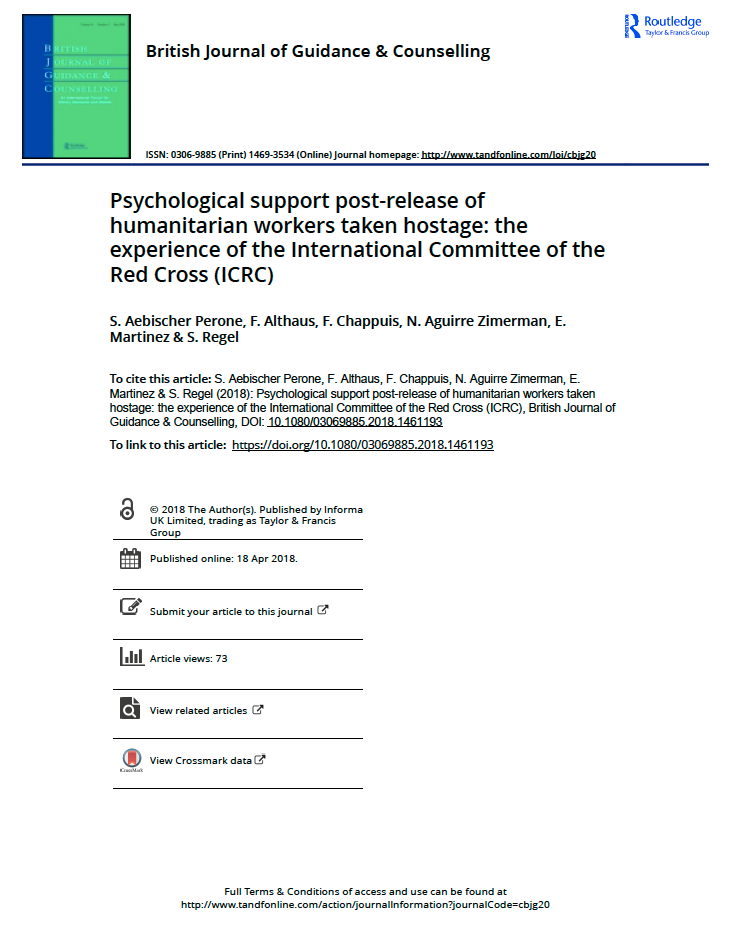This paper by S. Aebischer Perone, F. Althaus, F. Chappuis, N. Aguirre Zimerman, E.Martinez and S. Regel (2018) describes the processes employed by a leading humanitarian organisation, with extensive experience in managing post-hostage situations. Following release, individuals previously deprived of liberty, do not immediately feel “free” and it takes time to reintegrate the person upon return. The purpose of peer support is to restore control, and mobilise personal resources and those of the person’s relatives. In addition, social and professional support allows those released to process their experience. It is important for the former hostages to realise that their reactions are common among people subjected to captivity. Being aware of what to expect and where to find support, if needed, is critical for adaptation and recovery. The longer the duration of the potentially traumatic incident and the succession of critical moments during an abduction, the longer the follow-up required compared to cases of single critical incidents. Accompaniment by a humanitarian peer, coordination of follow-up and the on-going institutional support including workplace reintegration, are key factors in ensuring post-release recovery of ex-hostage staff members.
Psychological support post-release of humanitarian workers taken hostage: the experience of the ICRC

- Published:
- 13 June 2018
- Region:
- Global
- Topics:
Share this: